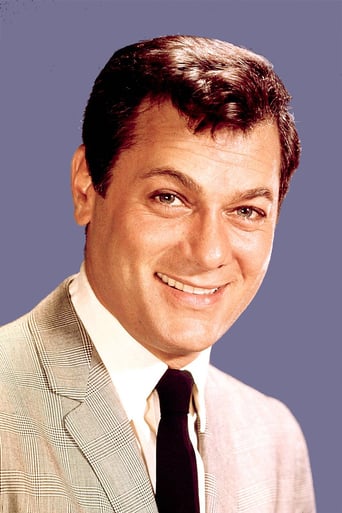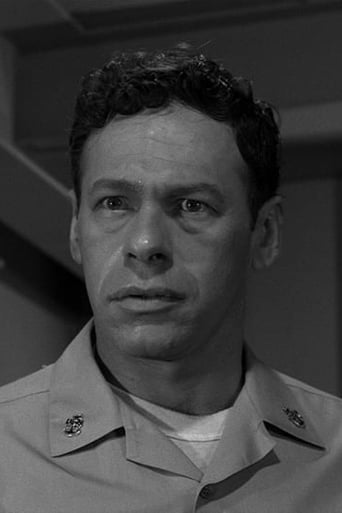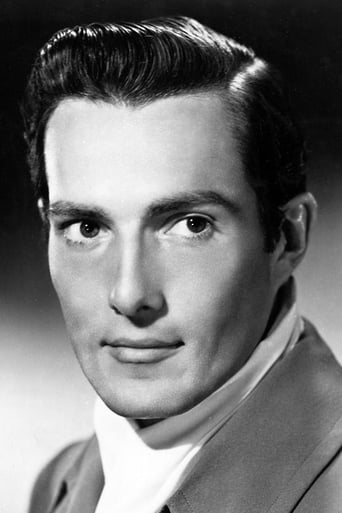Exoticalot
People are voting emotionally.
StyleSk8r
At first rather annoying in its heavy emphasis on reenactments, this movie ultimately proves fascinating, simply because the complicated, highly dramatic tale it tells still almost defies belief.
Frances Chung
Through painfully honest and emotional moments, the movie becomes irresistibly relatable
Bob
This is one of the best movies I’ve seen in a very long time. You have to go and see this on the big screen.
Coventry
True crime/factual thrillers about real-life serial killers have always fascinated me immensely, and many obscure highlights in this niche belong to my all-time favorite movies, like for example "10 Rillington Place", "The Honeymoon Killers", "Deranged", "The Todd Killings" and "The Tenderness of Wolves". This "The Boston Strangler" also stood quite high on my must-see list, but I had a couple of prejudices because I read that this film was largely fictionalized (even though the real names of suspects and victims are used) and because it's allegedly a typical product of its time (with an excessive use of contemporary popular split-screens and socially relevant topics processed into the screenplay). The prejudices definitely turned out to be truthful and I even daresay that "The Boston Strangler" is more of documentary/psychological case study rather than a suspenseful hunt-for-a-serial-killer thriller, but it's still undeniably a praiseworthy and recommendable slice of late-60s cinema. In a disturbingly brief period of time, in Boston, the raped and strangled corpses of various women are discovered in their own homes. At first, only elderly and Caucasian women seem targeted, but then younger and even colored victims are found and the crime scenes are located in the jurisdictions of different police departments. Criminology professor John S. Bottomly is assigned to bring structured communication and alignment in the different investigations and to draw a profile of the killer and his modus operandi. This vague description only covers the first half of the film, mind you, as the secondly half bluntly puts forward Alberto DeSalvo as the unmistakable culprit and we follow him around to get an insight of his complex and incredible case of schizophrenia. DeSalvo is a devoted family man with a lovely wife and two children, but when his "dark side" takes the upper hand he abuses his charming looks and job as a plumber to perpetrate into the house of unsuspecting women, even if they are warned by all media not to allow any strangers into their homes. It's rather peculiar – to say the least – that the film's screenplay uses the DeSalvo's real identity even though the vast majority of the story is pure fiction. The real DeSalvo was never diagnosed with multiple personality disorder and, moreover, he died (stabbed in prison) before his guilt was 100% proved. As a fan of true crime stores, I personally like this and even consider it to be rather manipulative since you are more or less forced to sympathize with this poor guy because he supposedly commits these horrible murders unconsciously. It even seems as if director Richard Fleischer wasn't all that interested in the facts of the case, but primarily intrigued by the mass hysteria and social impact of a "maniac-at- large" situation in a metropolitan city. The split screens are often used to illustrate fragmented reactions of random bystanders prior to the discovery of another strangled victim, like a conversation between two gossipy neighbors on one half of the screen while a victim lies dead in her room on the half. Other interesting but substantially irrelevant sub themes in the script include the scenes in the Boston gay community (quite progressive in 1968) and the depiction of an entire city torn apart by the fascination for their own local serial killer as well by the nationwide fascination regarding President JFK's assassination. "The Boston Strangler" was quite an important film for many of its cast members as well. Henry Fonda once more established himself as one of the most talented actors in history, while Tony Curtis proved that he could very well handle difficult and integer roles. George Kennedy, on the other hand, proved something that he has proved throughout his entire career, namely that he was a reliable supportive actor who modestly remained in the shadows of the big stars.
Scott LeBrun
This viewer, for one, knows that usually Hollywood productions based on true stories have to be taken with a grain of salt, that they won't exactly be 100% accurate. However, no matter if there is invention or fictionalization going on in "The Boston Strangler", it's still an absorbing, well-crafted film with an incredible cast just full of familiar faces. Much has been made of the documentary-style approach that it takes to its events, and deservedly so; only towards the end does it get more surreal, as it attempts to get into the head of the disturbed killer. Director Richard Fleischer does great work here, especially the way that he utilizes the Panavision aspect ratio and the split screen technique. Best of all is an unexpectedly potent performance by Tony Curtis as Albert DeSalvo, the man believed to be the unfortunately prolific Boston Strangler who murders almost a dozen women during the course of the film.As this serial killer goes about his business, the intense manhunt is launched, with law expert John S. Bottomly (Henry Fonda) drafted to lead a task force. Detectives such as DiNatale (George Kennedy), Soshnick (Mike Kellin), and McAfee (Murray Hamilton) pursue all possible leads, and consider *any* sort of "deviant" as a potential suspect. It isn't until the film is about half over that we finally get a proper introduction to DeSalvo, and see him in action, in the guise of his job as a furnace man, selecting victims. Eventually, he does get caught, and the final portion of the tale has Bottomly doing his hardest to get some kind of confession out of him."The Boston Strangler" is a little ahead of its time with a rather daring amount of explicitness, in terms of bare skin and violence. Fleischer dares to take his time moving from scene to scene, and creates the kind of procedural that is always fascinating for this viewer. Use of Lionel Newmans' score is also very spotty, adding to a respectable degree of realism. But it's that lengthy end portion with Bottomly attempting to get DeSalvo to open up that's the corker. Curtis really was a better actor than often given credit for, and he shows it here.The large list of people to watch for in this cast include Hurd Hatfield (in a poignant performance as a homosexual that counteracts the homophobia from the cop characters), Jeff Corey, Sally Kellerman, William Marshall, George Voskovec (in a funny turn as renowned psychic Peter Hurkos), Leora Dana, Jeanne Cooper, George Furth, William Hickey (sympathetic as a disturbed suspect), James Brolin, Dana Elcar, William Traylor, and Alex Rocco in an uncredited bit.This is good stuff and worth a look for those with an interest in true-crime stories.Eight out of 10.
richieandsam
THE BOSTON STRANGLER.What a great film.I only watched this movie because it is based on a true story about a serial killer in America. I am fascinated with serial killers anyway, i am interested in what makes them kill, what makes them not care about human life.This film was really well made. The effects were not great... when Tony Curtis was driving his car, you could see so easily that he was not actually driving the car... but then this film was made in 1968... they didn't have the special effects that we have now.The story was good... it is about Albert DeSalvo. He was convicted of rape and sentenced to life imprisonment. He also confessed to the murder of 13 women...Tony Curtis did a fantastic job playing DeSalvo. He was believable. The movie also starred Henry Fonda and George Kennedy who also did a great job.The film had some really nice shots in it... a lot of the film was split screen with 2 or more pictures on the screen playing at the same time. It was really well done, but I did find that if there were about 4 or more pictures at once, it was difficult to see everything that was happening.Obviously, this is a movie based on a true story... so I don;t know hoe much of it is true and how much is made up... but it was a very entertaining movie and really well made.I will give this film 8 out of 10.I really liked it, and would watch it again.To read more of my reviews, please like my Facebook page:http://www.facebook.com/pages/Ordinary-Person-Movie- Reviews/456572047728204?ref=hl
MartinHafer
My background is not typical of the average viewer. Years ago, I used to be a psychotherapist and I worked with some very, very sick people. In addition, I taught psychology. So I have some idea what I am talking about when I say this film is probably a lot of psychological mumbo-jumbo. Let me explain. Back in the 1950s, the book and movie "The Three Faces of Eve" created a sensation. Suddenly this new diagnosis of Multiple Personality Disorder (now called Dissociative Identity Disorder) was identified and the number of cases was very large for a newly named mental illness. And, when the TV mini-series "Sybil" came out, the number of cases increased dramatically. Then came the bombshell--the lady who identified herself as 'Eve' admitted that her illness was a hoax--and there was good reason to doubt the account in "Sybil" as well. And, each time a movie or book came out on the subject, the number of cases increased! Something was clearly amiss. Today many counselors and psychologists doubt that the disorder actually exists. I am not sure I'd go that far, but do know that many folks who claim to have it do so in order to avoid prison--as there is clearly a gain for them to be 'sick'. So, in light of this (and so much more I haven't the space for here), it's very doubtful that the killer in "The Boston Strangler" actually had the Multiple Personality you see in the film. He more likely used this as an excuse for his sick behaviors. Instead, sex offenders often 'compartmentalize'--in other words, while they KNOW what they did, they often deny it to themselves and others--treating their sick behaviors like it happened 'to another part of them'. Despite the distinct possibility that MPD does not exist, it does NOT make "The Boston Strangler" a bad film. First, at the time, MPD was seen as a very real thing by most therapists. Second, the film is very well constructed, finely acted and interesting throughout.The film is about a real series of rape/murders in the Boston area and the man who is assumed to have been the perpetrator, Albert DeSalvo. The entire first hour is about the investigation and furor over the killings and you don't even see DeSalvo (Tony Curtis) until this hour is complete! This makes this movie perhaps the only one I know of where you wait this long to see the star! I liked the investigation portion the most, as it was NOT glamorized but seemed rather realistic. As for Curtis, soon after he enters the film, you see him committing one attack---and you can clearly see it's him for the first time. This attack doesn't go as he planned, however, and for the first time he's left a living witness. Soon after, he's caught while trying to break into another home. The problem is not whether or not he did the crimes but whether or not he's even competent to stand trial for them. Overall, a fascinating portrait of the investigation and the killer. Well worth seeing and a quality production despite the strong possibility DeSalvo was NOT a Multiple Personality.By the way, the first portion of the film consists of a bizarre multi-paned screen--with several scenes occurring in little windows. The only other film of the time that I can think of that did this is "The Thomas Crown Affair".








